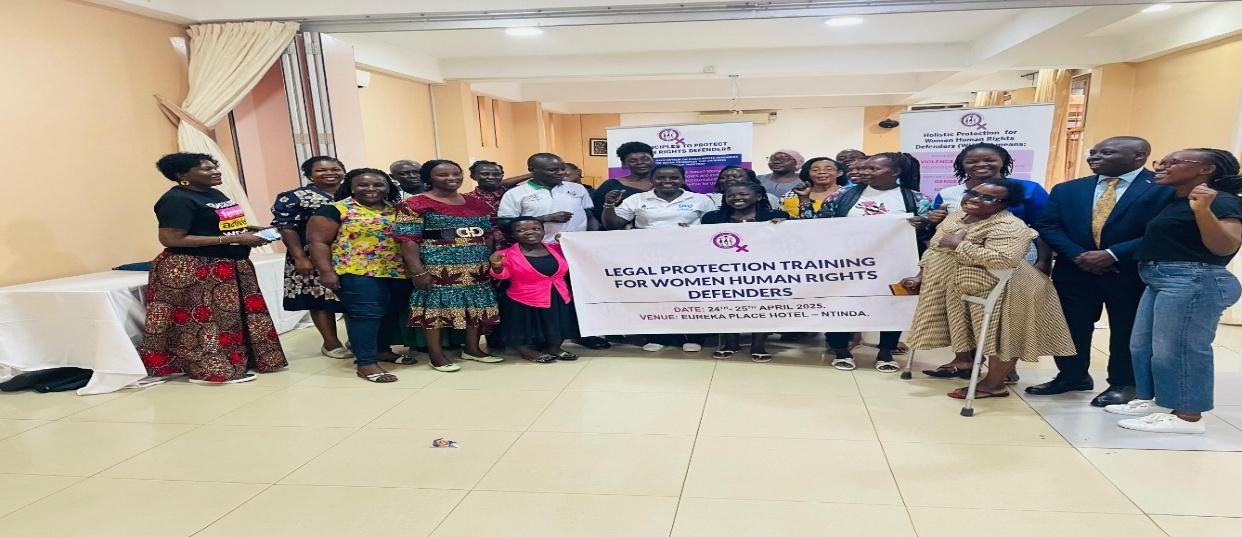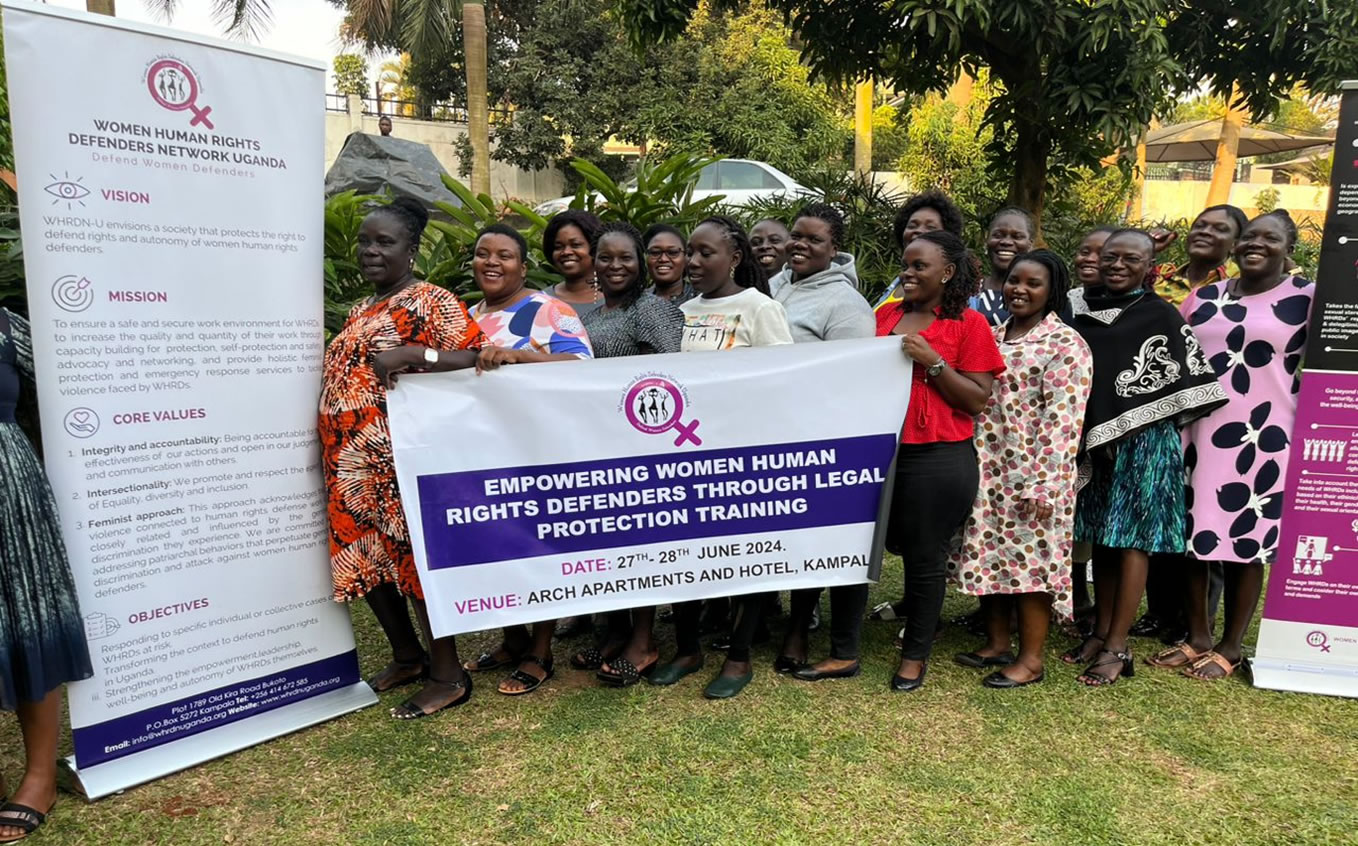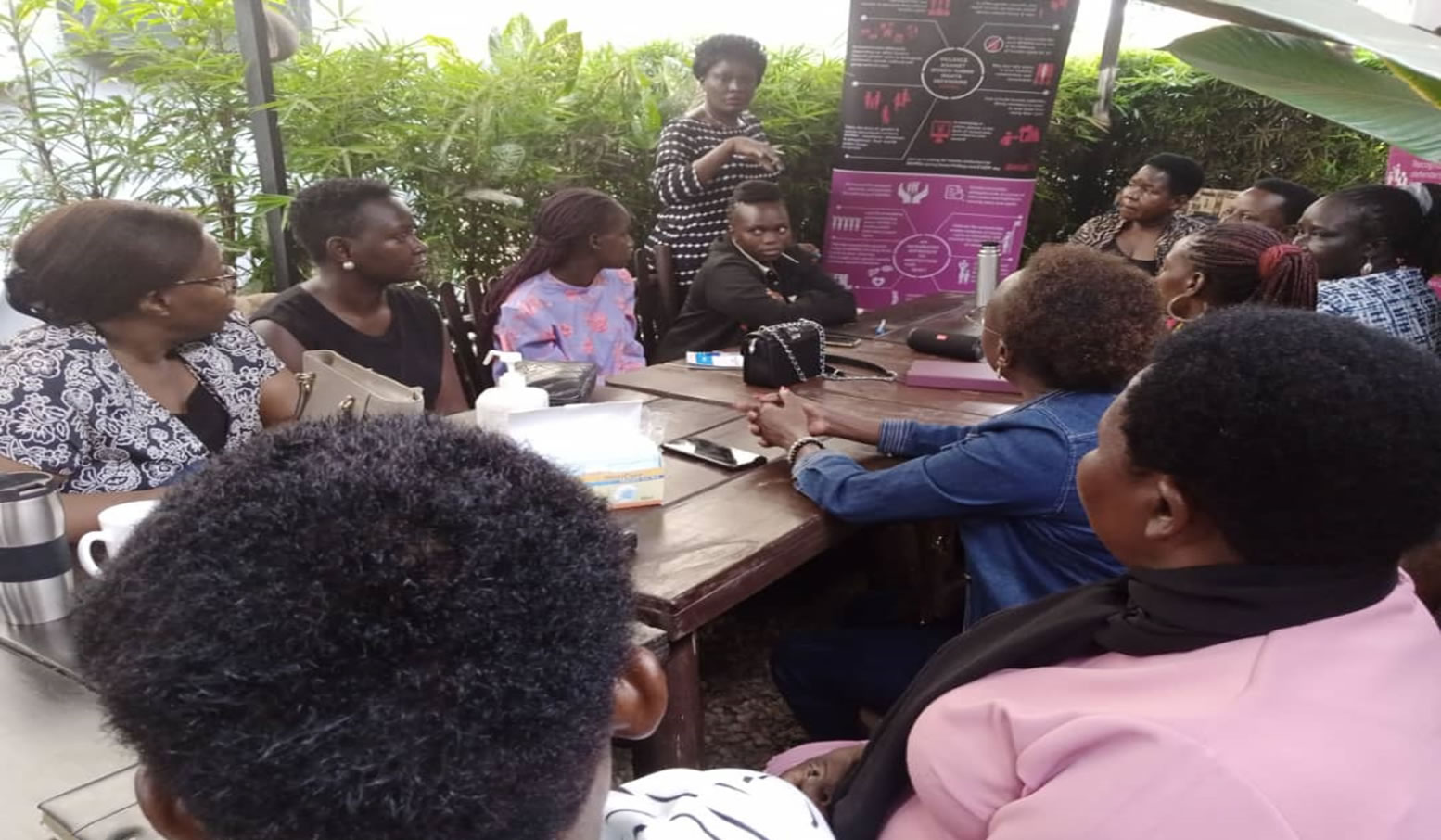Building resilience and solidarity in challenging times
On January 21st, 2025, the Women Human Rights Defenders Network Uganda (WHRDN-U) hosted a powerful half-day workshop at the HRAPF Community Center, bringing together structurally marginalized women human rights defenders from across Uganda. The convening addressed a critical issue affecting our community: the devastating impact of isolation on women defenders who face multiple layers of discrimination and violence.
Confronting Harsh Realities
The workshop created a brave space where defenders shared their lived experiences of working at the intersection of human rights advocacy and structural marginalization. Their stories painted a sobering picture of the challenges facing our community:
- A queer mother at risk of losing custody of her children simply because of her identity
- Defenders facing complete social isolation, with some experiencing fear of corrective rape
- Exclusion from civil society organizations for advocating inclusivity in programming
- Mental health struggles so severe that some defenders reported having suicidal thoughts
These testimonies highlighted how isolation compounds the already significant risks that women human rights defenders face, creating layers of vulnerability that require urgent attention and action.
Mapping Patterns of Violence
Through collaborative brainstorming sessions, participants identified recurring patterns of violations that structurally marginalized women defenders encounter:
- Community-level discrimination that extends beyond individual prejudice to systemic exclusion
- Physical attacks and threats from both state and non-state actors
- Economic marginalization through job insecurity and limited livelihood opportunities
- Family and social rejection that leaves defenders without traditional support systems
Building Strategies for Resilience
The workshop wasn’t just about identifying problems—it was about developing solutions. HRAPF’s perspective on crisis management and protection strategies revealed both challenges and opportunities in the current context.
Key concerns emerged around the declining availability of relocation support and the struggle to access stable housing amid rising homelessness and unemployment. However, the session also generated practical strategies for building resilience:
Economic Empowerment
- Actively seeking opportunities across various economic sectors
- Developing professional positioning while maintaining awareness of political risks
- Creating sustainable livelihood strategies that don’t compromise safety
Crisis Management
- Prioritizing self-care during periods of heightened political tension
- Building stronger networks for mutual support and protection
- Maintaining vigilance while continuing advocacy work
The Path Forward
The convening reinforced several critical insights that will shape WHRDN-U’s ongoing work:
Mental Health Must Be Centered: The severe psychological impact of isolation and discrimination requires dedicated attention and resources. Our movement’s sustainability depends on supporting the holistic well-being of defenders.
Economic Justice Is Human Rights: Access to stable livelihoods isn’t separate from human rights work—it’s fundamental to it. Defenders cannot sustain their advocacy without economic security.
Solidarity Is Survival: The networking and connection fostered during the workshop demonstrated the power of collective action. When defenders support each other, they become more resilient and effective.
Inclusion without Exploitation: The challenge of including marginalized voices in advocacy work while protecting them from additional risks requires careful, ethical approaches.
A Commitment to Continued Action
This convening was not a one-time event but part of WHRDN-U’s ongoing commitment to supporting the most vulnerable members of our community. The stories shared, connections made, and strategies developed will inform our programming and advocacy moving forward.
We recognize that structurally marginalized women human rights defenders face unique challenges that require specialized support and understanding. Their courage in continuing this vital work despite overwhelming obstacles inspires us and reinforces why this network exists.
The isolation that many defenders experience is not inevitable, it’s a result of systems that can be changed through collective action, sustained support, and unwavering solidarity.
The Women Human Rights Defenders Network Uganda continues to advocate for the safety, security, and sustainability of all women defenders, with particular attention to those facing structural marginalization. For more information about our programs and how to get involved, contact us through our website.
Join us in building a movement where no defender stands alone.












